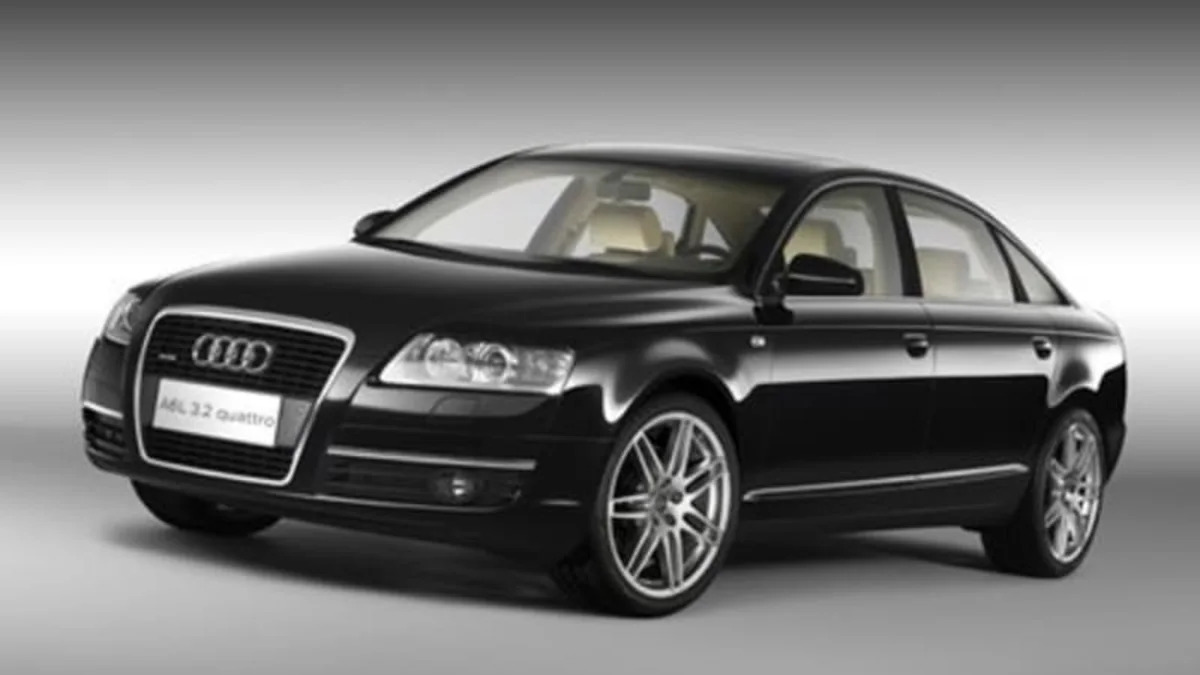
Audi has decided to launch some of their more advanced and efficient engines in the Chinese market. At an Audi Green Olympics Initiative event in Shanghai, the company announced the addition of the 2.8L FSI V-6 to the A6L and the A8. In the big A8, the 2.8L is rated at 28.3 mpg (US) which is pretty impressive for such a large car. In the next few years they also plan to introduce their TDI diesel engines in the Chinese market. In the meantime they will also be supplying 1,000 cars with the FSI V-6 and smaller turbo-charged TFSI engines for use as VIP shuttles during next summers Olympic Games in Beijing.
[Source: Audi]
Engine initiative from 2008
Audi launching ultramodern engines in China
- FSI and TFSI versions for lower consumption
- Environment initiative at the Summer Olympics
- Ultra-efficient TDI technology now also for China
Audi is now bringing its latest-generation, highly efficient engines onto the Chinese market, too. "We have been one of the leading brands for the development of vehicles that use natural resources sparingly ever since the 1980s," commented Werner Eichhorn, Head of Audi Sales in China, at the Audi TechDay China in Shanghai. "We are now making preparations for selling even more cars with FSI and TFSI engines in China." In this connection Audi is currently also drawing up a scenario for launching its TDI engines, the most successful efficiency technology in the world, on the Chinese market.
The opening event of the "Audi Green Olympics Initiative" took place in the major Chinese industrial centre and port of Shanghai, coinciding with a TechDay at which Audi presented its efficiency technologies. The initiative complements the "Audi Olympic Games Program" of cultural and ecological highlights to flank the 2008 Summer Olympics in Beijing. One of the principal ways in which Audi is contributing is by providing 1,000 cars with direct-injection FSI and TFSI petrol engines to serve as VIP shuttles. Their low emissions will help to keep the skies above Beijing clean during the Games.
In a few days' time, Audi will be unveiling a new, ultra-efficient saloon model at the Guangzhou Auto Show near Hong Kong – the A6 L 2.8 FSI, with a V6 engine featuring the Audi valvelift system (AVS), a pioneering technology for variable control of valve lift. The same engine will be available in the Audi A8 2.8 L FSI. According to European licensing data, the A8 2.8 FSI uses just 8.3 litres per 100 km – and its CO2 emissions of 199 grams per km is the lowest figure in the luxury saloon segment.
Audi believes there is every prospect of establishing the most successful efficiency technology in the world – the TDI – in China in the next few years, as indeed there is in the USA. The TDI is a cornerstone of Audi's global strategy for the future; it combines superior power with low fuel consumption. TDI engines are consequently capable of harnessing escalating fuel consumption specifically in China, and therefore also CO2 emissions. Diesel-powered passenger cars have hitherto been virtually unknown in China; the introduction of the low-sulphur fuel that they require now satisfies a vital requirement for the operation of modern, low-pollution TDI engines.
Audi became the first premium carmaker in the world to move into the Chinese market when it started operations there in 1988. Today, the brand with the four rings is the unchallenged market leader in the premium segment with a 47 percent share of the local market, and also the fastest-growing brand. The dynamically expanding Chinese market is now Audi's third-largest national market, after Germany and the UK.
Between January and September 2007, Audi sold 75,276 vehicles in China, 25.7 percent more than in the same period of last year. 69,664 of these were built at the Changchun plant, in Jilin Province, Northeast China, a joint venture operated by First Automobile Works (FAW) and Volkswagen.
The Changchun plant manufactures the Audi A4 and the A6 L with a 102 millimetre longer wheelbase – easily the most successful premium vehicle in China. The A8, which is imported from Germany, is likewise proving notably successful, with sales increasing by 33.4 percent in 2006. The Audi Q7, too, was successfully launched on the Chinese market last year, and the TT and R8 were unveiled at the end of 2006.


Sign in to post
Please sign in to leave a comment.
Continue